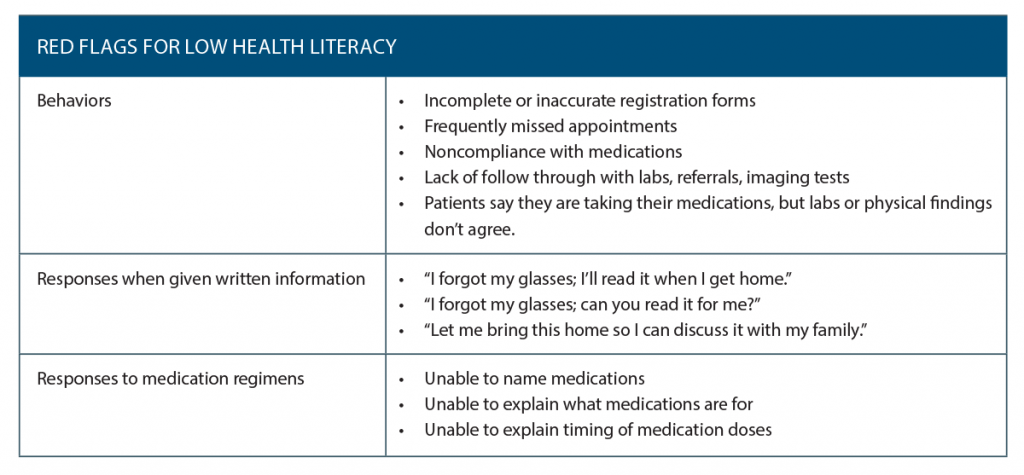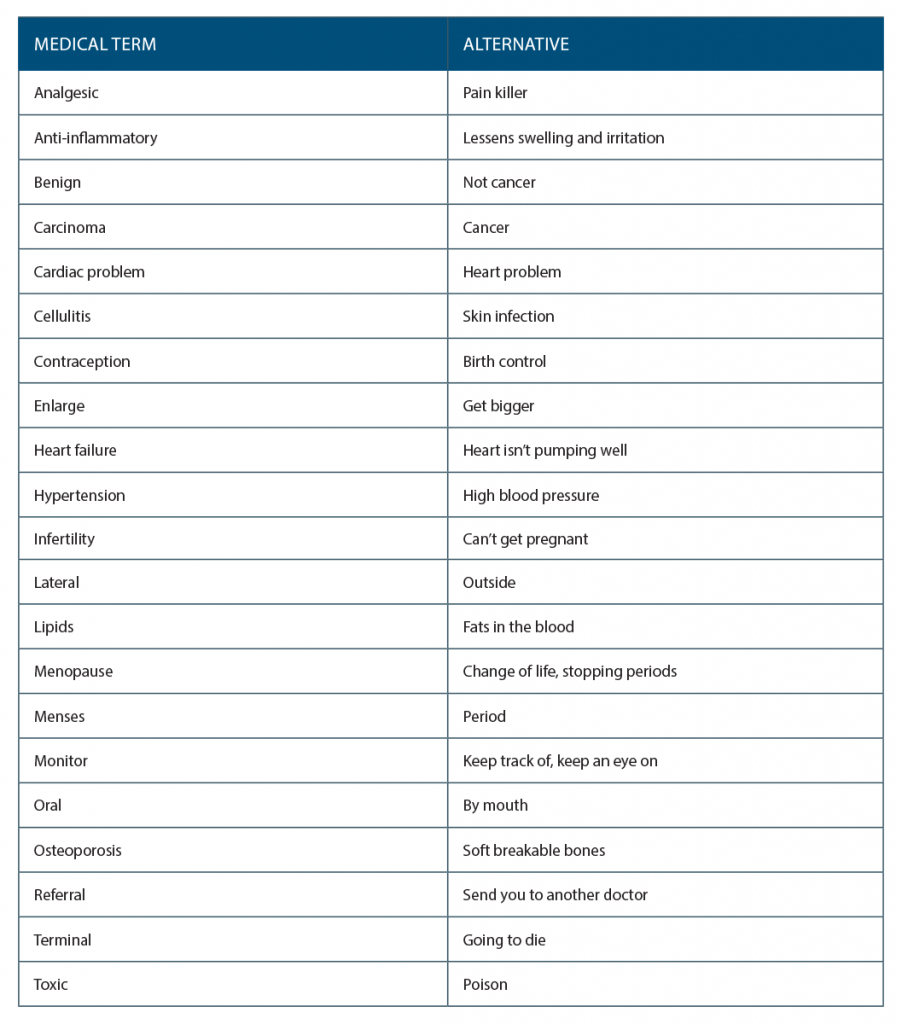What Physicians Say vs. What Patients Hear
Providing an example of how patients hear, Dr. Perry-Gilkes recalled a patient who came to the clinic wanting her to “equal my librium” not understanding what “equilibrium” meant during a previous visit. This highlights what patients who are not familiar with medical terms may hear in the clinic. When issues get more complicated—for example, when patients are signing informed consent prior to surgery or following medication instructions—not understanding the information conveyed can have life-altering consequences, from increased complications leading to hospitalizations to increased mortality. For physicians, legal challenges and lower quality metrics could be the fallout (Health Affairs. April 4, 2019. Available online).
Explore This Issue
May 2019In a 2018 article she wrote on health literacy, Dr. Perry-Gilkes provided examples of simple words physicians can use instead of common medical terms likely to be too difficult for many patients to understand (See “Talking to Patients Using Common Alternatives to Medical Terms,” right) (Atlanta Med. 2018;89:6–8).
In the article, she also described a “teach-back” technique to make sure patients are hearing what the physician is saying. Instead of asking patients if they “understand” what is said, ask them to explain back to you or demonstrate how they will follow, for example, recommendations or a treatment plan. If the patient can’t do this, repeat the information using simpler terms or explain it to a family member or companion.
Ryan Brown, MD, an otolaryngologist–head and neck surgeon at Kaiser Permanente in Denver, also emphasized the need to use simple language and include family members in discussions about treatment. “One of the most important things [to improve health literacy] is just to have good communication with patients and keep terms as simple as possible,” he said.
At Kaiser Permanente, he said, physicians are taught how to deliver medical instructions to patients through training that includes role playing. “Having that process helps to bring it down to the patient level instead of using words that are hard for patients to understand,” he said.
He also stressed the importance of including family members, which is particularly crucial when talking to patients from cultures in which, for example, a husband may need to give his blessing for a treatment his wife needs. “Obviously we’re treating the patient,” he said, “but in some cultures it is all about family.”
Nicole Leigh Aaronson, MD, clinical assistant professor of otolaryngology and pediatrics, Sidney Kimmel Medical College, Thomas Jefferson University in Philadelphia, the lead author of one of the few studies that have looked at health literacy in otolaryngology, also highlighted the need to encourage patients to ask questions and have them reiterate what they hear the clinician telling them (Int J Pediatr Otorhinolaryngol. 2018;113:252–259). “We definitely see people who have heard things but who don’t remember them, so I think [this] may be one of the best techniques to impart information and avoid complications and risk misunderstanding,” she said, adding that providing small amounts of information at a time is critical to avoid overwhelming patients.
In her study, Dr. Aaronson and colleagues reviewed the research on health literacy in pediatric otolaryngology published between 1950 and the present and found three main areas of research: readability of patient materials, patient recall after informed consent, and attempts at improving patient education. Their data showed that much of the information imparted to patients and families is not meeting literacy needs. Patient materials (brochures and online information) were consistently written at levels higher than the recommended sixth grade reading level, and patient recall after informed consent was “pretty atrocious,” according to Dr. Aaronson. The studies that looked at improving patient education showed that adding a visual or interactive component, such as practice drills or a video, improved patient understanding and recall.

